THERE WAS ALWAYS a question mark over Hyundai’s decision to tackle the luxury market whilst retaining the Hyundai branding.
The marketing logic was probably impeccable, but as Toyota and Nissan discovered before them (and to a lesser extent, Honda), luxury car buyers want a brand that doesn’t carry the baggage of economy cars. That’s why Toyota created Lexus, Nissan created Infiniti and Honda came up with Acura.
Of course, Hyundai saw Genesis as raising the overall profile of the Hyundai nameplate in Australia. The reality is that the Hyundai nameplate weighed on the aspirations of Genesis (interestingly, in South Korea, the Genesis brand has always stood apart, and Genesis cars there have never carried any Hyundai identification).
A Lexus-like strategy
Genesis has made it clear that it will tackle the luxury brands on their own terms, and follow many of the very clever marketing approaches adopted by Lexus when it arrived in Australia.
As Lexus showed, having a superbly designed- and built-product is not, on its own, sufficient to change rusted-on ideas about luxury brands. Over-50s in particular have had a long relationship with the established brands, so they are even less likely to quickly abandon long-held attitudes, or to embrace newcomers.
However, luxury car buyers can be swayed by a much-improved customer experience, something that many buyers and owners of traditional luxury brands complain has been forgotten by the likes of Mercedes-Benz, Audi, BMW and other upmarket marques. Many seniordriveraus readers recall when being a customer of one of these brands meant the red-carpet VIP treatment, as you’d expect after laying out considerably more than the average car buyer. But as the luxury brands expanded their ranges to rope in car buyers in lower price ranges, inevitably the special treatment for their customers diminished.
Lexus recognised this early on and capitalised on it. Disaffected luxury car buyers gravitated to the newcomer, and others who may have been in the market for a Benz, Audi or BMW found the treatment and welcome extended by Lexus to be far more appealing, less judgmental and more generous. Local manufacturers weren’t immune either, as they tried to woo upmarket buyers with high-end models they found themselves losing sales to Lexus.
It was a casebook study in marketing. Even today, brands such as Maserati acknowledge that customers are looking for a lifestyle package, not just a car.
Enter the Genesis customer experience
The newly standalone Genesis will offer a home delivery service for intending customers to test drive its vehicles.
Overcoming the stress and discomfort many people feel about dealing with sales staff, Genesis will be offered with an industry-first online build and order system that includes haggle-free fixed pricing.
Scheduled servicing will be made easier with concierge pick-up and delivery, plus a complimentary courtesy car.
Genesis will also instigate a convenient handover delivery service for new purchase and set up a network of Genesis Studios to deliver a premium customer experience.
Strong warranty and all-round package
All new Genesis vehicles will be covered by a five-year unlimited kilometre warranty (a strong offer when the major luxury brands stubbornly stick to their three-year warranties), five years free scheduled servicing, five years 24/7 roadside assist, five years free map updates, a five year subscription to Genesis Connected Services and the exclusive “Genesis to You” valet service.
As an additional incentive, customers will be given a two-year complimentary subscription to the Genesis Lifestyle program incorporating benefits such as a Lifestyle Concierge and Global Privileges including travel and medical assistance.
All of these innovations show a deep understanding of what a luxury car buyer wants – more of an all-round VIP experience and the kind of special treatment that they feel they deserve. And that the traditional luxury car brands used to offer.
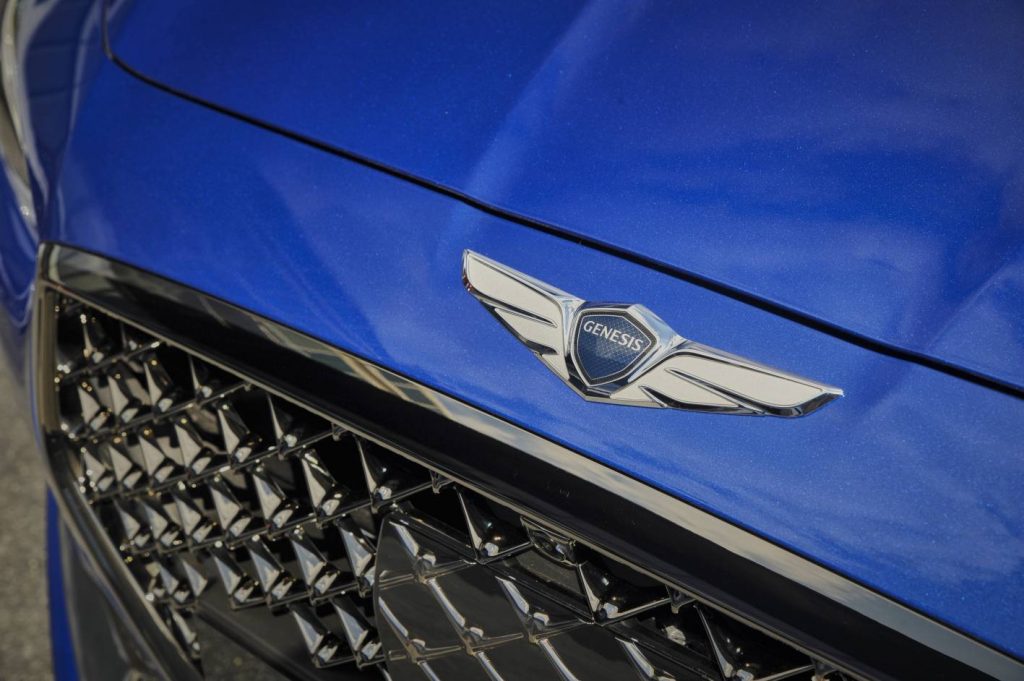
THE NEW GENESIS G80
The new Genesis G80 comes in at a very competitive $68,900 for the G80 3.8, wading into the BMW 5 Series/Mercedes-Benz E-Class/Audi A6 segment. The Sport Design is $72,900, the 3.8 Ultimate $88,900 and $92,900 for the 3.8 Ultimate Sport Design (all prices plus on road costs).
It gets adaptive control suspension with Australian tuning and the Genesis Active Safety Control package.
Standard interior features include 9.2-inch HD multimedia system with satellite navigation, 17-speaker Lexicon by Harman premium audio, wireless (Qi standard) smartphone charging, LED headlights, surround view monitor, memory driver’s seat/power steering column adjustment and Genesis Connected Services.
The $88,900 3.8 Ultimate introduces more luxury and additional features, including 19-inch alloy wheels, Nappa leather-appointed interior, heated/ventilated front and outboard rear seats, heated steering wheel, panorama glass sunroof, powered soft-close doors, head-up display, power rear seats, suede headlining/pillars, Smart Key Card (credit card type key) and 7.0-inch colour TFT-LCD instrument cluster display.
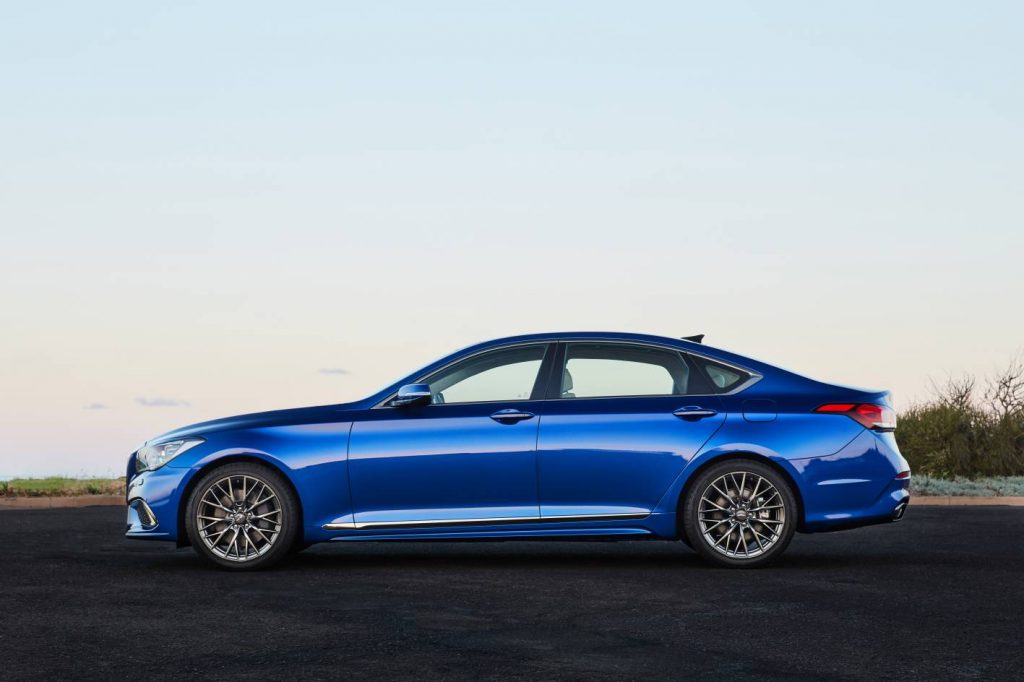
For customers seeking a more dynamic look, a Sport Design package ($4,000) features interior and exterior styling enhancements.
Also available for G80 is an optional panoramic sunroof ($3,000) – standard on the Ultimate variant.
“Innovation, performance and design that embodies our Athletic Elegance ethos are the key pillars of strength in the new Genesis G80 sedan,” Manfred Fitzgerald, Executive Vice President, Global head of the Genesis Brand said.
“The G80 is the perfect model for the launch of the Genesis brand in Australia, providing a premium driving experience, supported by the ‘Genesis To You program’ and an all-inclusive ownership proposition,” he said.
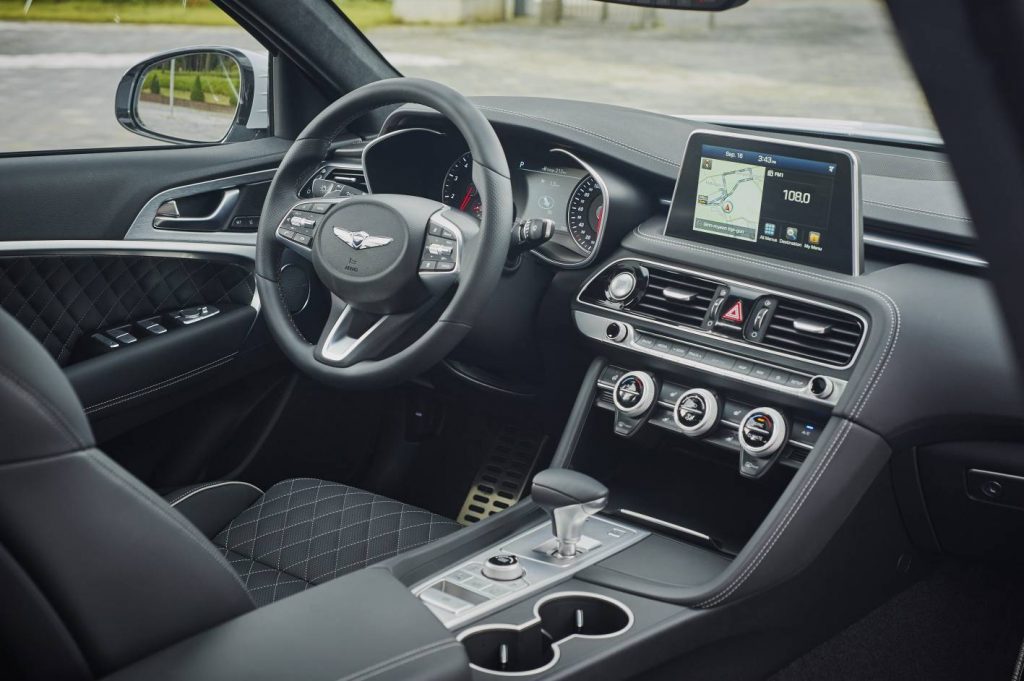
Genesis G80: Features Overview
Alloy 3.8 litre V6 (232kW at 6,000rpm and 397Nm at 5,000rpm), teamed with a lightweight aluminium 8-speed automatic transmission driving the rear wheels.
A drive mode integrated control system lets the driver select from Normal, Eco, Sport and Snow modes.
Genesis Adaptive Control Suspension (GACS) incorporating Dynamic Stability Damping Control (DSDC) and Electronic Control Suspension (ECS), the latter utilising continuously variable dampers with the ability to intelligently adjust compression and rebound forces up to 100 times per second.
Australian-specific chassis tune, which includes suspension and steering settings, developed over thousands of kilometres of local testing on a range of surfaces, including urban roads, highways, mountain passes and gravel country roads.
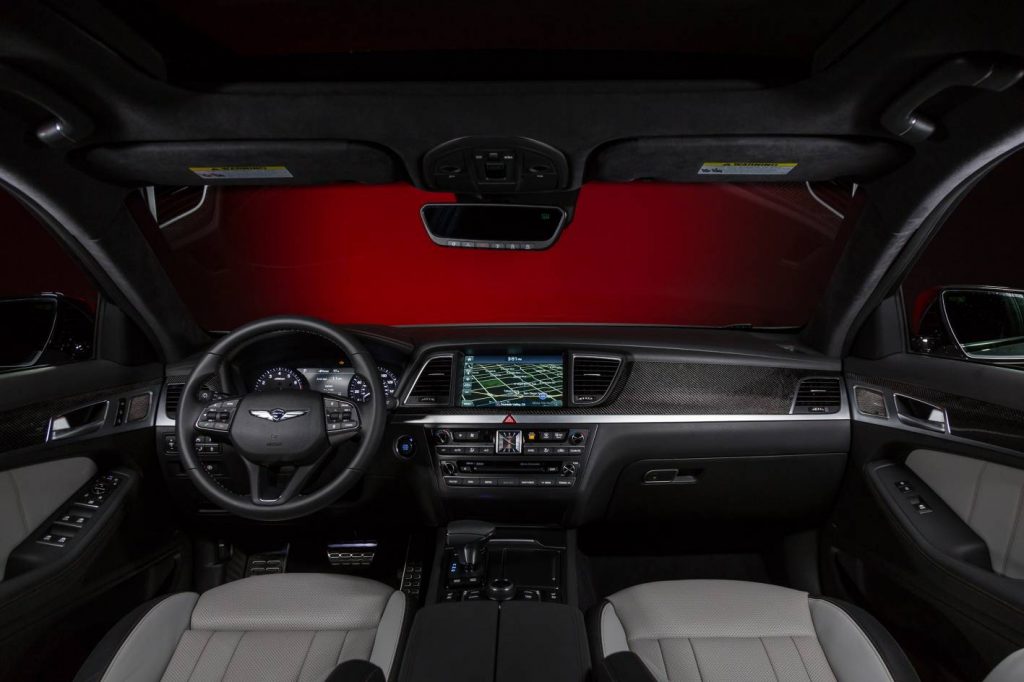
Genesis Active Safety Control suite includes Blind-Spot Collision Warning, Driver Attention Warning, Forward Collision-Avoidance Assist with pedestrian detection, and High Beam Assist systems.
Lane Departure Warning, Pre-active Seat Belt, Rear Cross-Traffic Collision Warning and Smart Cruise Control systems, as well as a Surround View Monitor, Parking Distance Warning and a Tyre Pressure Monitoring System.
Nine airbags:
· Driver and front passenger
· Driver and front passenger side (thorax & pelvis)
· Driver knee
· Rear outboard side (thorax)
· Side curtain (full length)
A driver-focused horizontal layout plus intuitive large touchscreen multimedia interface, square analogue clock and climate control system.
Soft touch materials throughout the cabin, aluminium and woodgrain-effect trim, suede, and Nappa leather upholstery.
A choice of nine exterior colours across the four model grades, as well as three interior trim options.
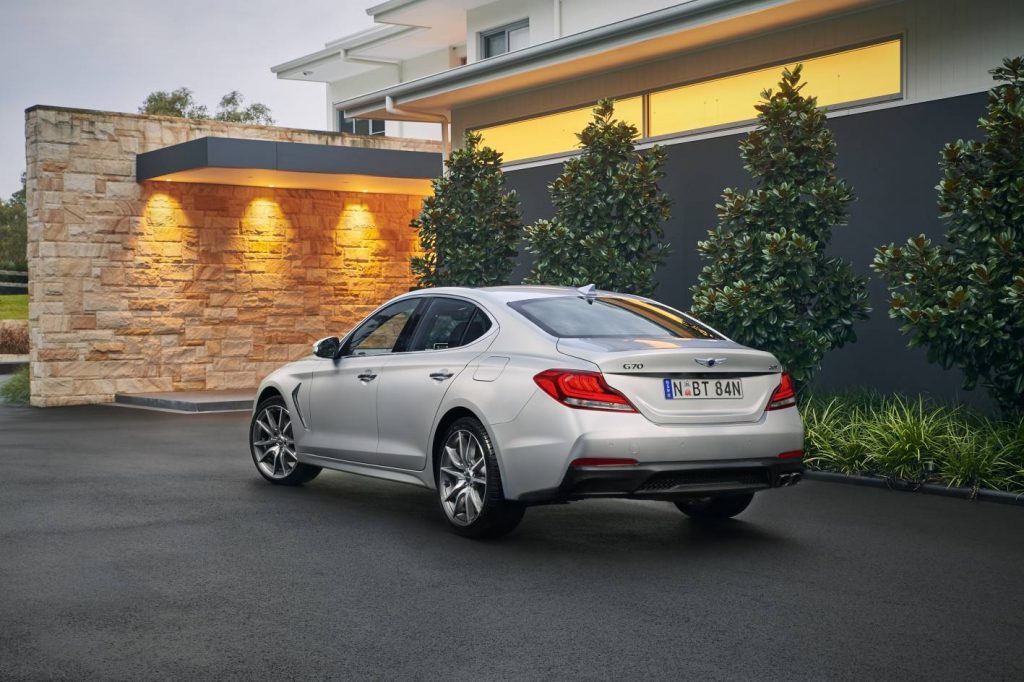
THE NEW GENESIS G70
The G70 will be the Genesis model to tackle the BMW 3 Series/Audi A4/Mercedes-Benz C-Class category.
Also fighting in this class are the Lexus and Infiniti premium compact saloons.
The G70 will be priced between $59,300 and $79,950 (plus ORC). The 2.0T Sport is $63,300, the 2.0T Ultimate is $69,300.
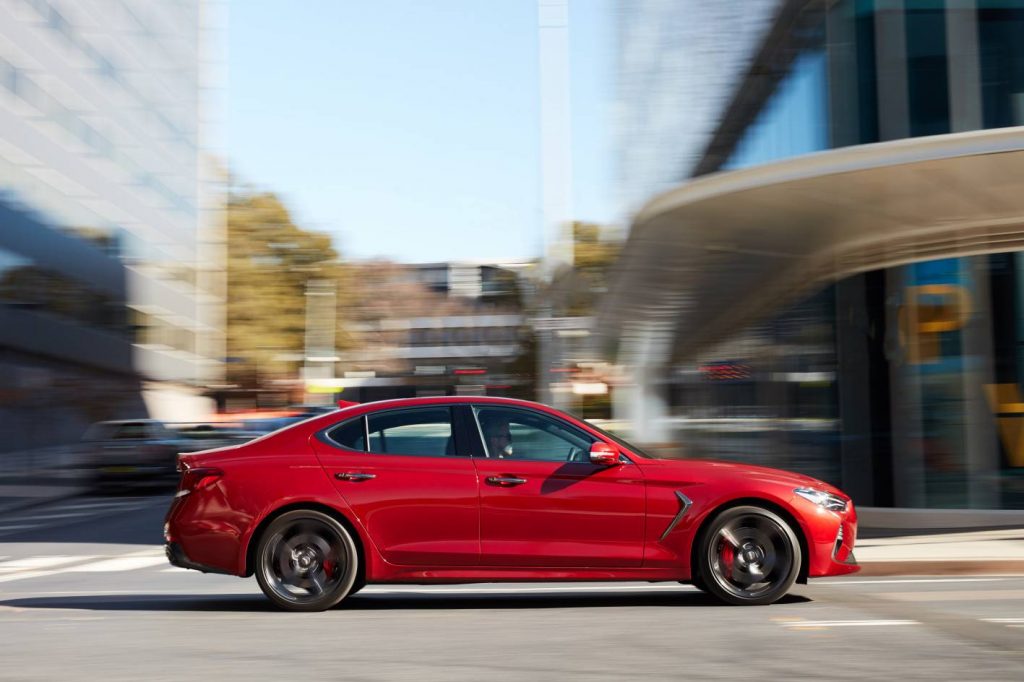
The base model gets a turbocharged 2-litre petrol four-cylinder engine that produces 182kW and 353Nm. Further up the range, there will be a 3.3-litre twin-turbocharged V6.
Standard equipment will be generous, incorporating 18-inch alloy wheels, leather interior trim, 8-inch touchscreen navigation, 12-way powered and heated front seats, tyre pressure monitoring, digital DAB+ radio, Apple CarPlay and Android Auto, nine-speaker sound system and wireless smartphone charging pad. The 2.0T Sport adds Brembo brakes, limited slip differential, Sport exterior and interior styling enhancements and sport instrumentation. The top-end Ultimate adds 16-way driver’s seat adjustment, driver position memory system, heated outboard seats, heated steering wheel and a powered adjustable steering column. Also standard on the Ultimate are head-up display, 360-degree camera, 15-speaker premium sound system and a Nappa leather interior.
As with the G80, the range comprises two engine choices and three trim specifications: the 2.0T, 2.0T Sport and 2.0T Ultimate models while the 3.3-litre V6 comes in Sport, Ultimate and Ultimate Sport. The V6 model will kick off at $72,450, rising to $79,950 for the luxury-focused 3.3T Ultimate and $79,950 for the more overtly sporting 3.3T that adds 19-inch alloy wheels, some unique colours, and dark chrome body accents to the specification.
The optional panoramic glass sunroof is $500 cheaper than on the G80 at $2500.
Once we have tested and assessed the new Genesis G80 and G70, seniordriveraus will bring you a comprehensive review, including everything the over-50 driver needs to know.
